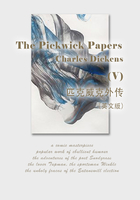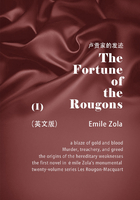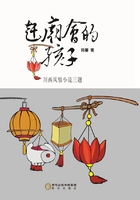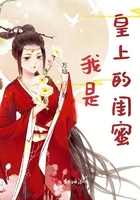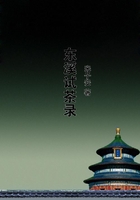The post office, like so many government buildings, was painted yellow. Over the years, it had faded to match perfectly the haze of dust that enveloped Sampath each time he bicycled in to work. He took a short cut that led down the main bazaar road, through the hospital grounds and then under the barbed-wire fence that had been erected about the post office compound to establish it as a place sacred to official order and duty. Naturally, the barbed-wire fence was not entirely intact, for the residents of Shahkot, never ones to respect such foolish efforts, had set to work as quickly as they could to dismantle this unfortunate obstruction. All about their own houses and in their gardens and courtyards, they discovered a sudden need for wire; and all through the day, while, say, picking an annoying wedge of betel nut from between their teeth, or lifting their feet into a friendly lap for a foot massage, inspiration for wire-use struck them. They had always wanted to scratch their names upon the bark of a certain tree or across the dome of a certain protected monument. A curtain needed hooks. A gate, some sort of latch. There was a plant that would not stand up straight. A goat that tried to eat the plant. A dog that tried to bite the goat. An urgent need for fencing close to home. Soon there were gaps all around, and wherever there weren't, one person or another had worked the wire up on stakes or trampled it down to allow for free movement about the town.
And so the post office stood in the middle of the hustle and bustle of Shahkot. Schoolchildren, beggars, potters and signboard painters. Cows and pigs and water buffaloes. Ikebana class teachers from the polytechnic. Mathematics tutors. Clerks from the asthma institute, and cooks. Lady doctors and the head of the mental asylum. Accountants. Hosiery products men. Umbrella repair men. A bread and egg man. A fish woman. Flies. A washerman barely visible beneath sheets and towels. An orange-robed sadhu smiling and bowing despite the heat. (Truly India is a land of miracles.) Scooters and rickshaws, trucks and cars. Everyone's mother, father, uncle, sister-in-law and fourth and fifth cousin-brother twice and thrice removed. And Sampath on his way to work with Pinky sitting on the back seat of the cycle, charting a zigzag line through it all as he sought out the promise of coolness alongside walls and under trees and awnings, for the morning sun was already hot. Dashing from one blue pool of shadow to another, he conducted an erratic path through the crowd, which responded with snorts and shouts, a vast blowing of horns and utter chaos.
'Stop!' Pinky thumped her brother. 'I am almost falling off the back here. Can't you even cycle straight?' They continued a bit farther. 'Let me off.' She hammered at him. 'This is too much. I am going to take the public bus instead. You are making me feel sick.'
He stopped and, glowering at him, Pinky straightened her fantastic outfit of sunset polyester and strode towards the bus stop. He watched her, resting for a minute as he drank a glass of ice-cold water from the water man's cart.
As the bus appeared around the bend, filled to bursting as usual, Pinky removed a hairpin from her hair so as to have a weapon against men who might misbehave on seeing such a pretty girl at close quarters. Throwing herself on to the overcrowded steps, hanging on, feet waving wildly in the air, she speared a man who was not only taking up too much room in her opinion, but had made the mistake of winking at her, unaware of whom he was up against. Sampath could hear him shouting in alarm as his voice carried out of the window of the bus and down the street.
Everyone on the bus shouted as well. Some in attempt to restore calm: 'But why are you making such a big fuss about a little thing like a wink?' Some in encouragement: 'Very good. Good for you. You show him.' Some disapproving and terse: 'There are some ladies who should be made to walk to work.' The bus disappeared in a billowing cloud of exhaust fumes.
When Sampath had finished coughing, he cycled on, taking a short cut that led through the hospital grounds, forgetting, as usual, to bend down low enough to pass under his own particular bit of raised wire when he reached the post office, so that a large tuft of hair was caught and wrenched from his head as he entered the compound. Perhaps it would later be claimed by the crows as a superior sort of nesting material. Was he, he wondered, an especially generous supporter of the increasing crow population of Shahkot? Would this make him prematurely bald? Or perhaps his hair, inspired by empty patches, would spring back thicker and more resilient than ever?
He addressed his questions to a passing cow. It looked back at him, sad-eyed, on the brink, it seemed, of big, wet tears. Before he had to suffer the silence of its response, Sampath answered for it hastily: 'Who can tell?' Then, propping his bicycle against a pillar, he made a who-can-tell? gesture in the air and hurried into the mail room.
Inside the post office, it was dark and grimy. Inexplicably, the only window was the little one through which they sold stamps and it was still firmly closed. Paper clips, forms and files lay all over a dirty grey floor and teetering towers of ancient ledgers and letters, black with dust, were stacked up to disappear into the discoloured mottled darkness above.
Sampath stood in the doorway, with his eyes shut tight so as to give them time for this transition from sun to shade. After all, he had not slept that night and he needed to be especially careful. He opened his lids slowly, releasing his pupils to discover the gloom, the air that resembled the shadows, the murkiness of pond water. This was summer: the landscape offering up only a few shabby colours, the senses mostly overwhelmed just by dark and light in harsh opposition.
'Oh, Sampath,' two voices exclaimed as he entered, evidently relieved to see it was him and not the head of the post office, and then continued with a conversation that was already in full swing. In a while Sampath could make out his fellow employees sitting in the dimness, discussing, with their legs up on each other's chairs, the very same monkey that Pinky had complained about that morning.
'It was very embarrassing,' said Miss Jyotsna. 'Before I knew it, that monkey had ripped my salwar and run away with my peanut cone. Now I have to get a new salwar made and you can just imagine what problems I am having with the tailor. I told him: "Either you do not know how to use a measuring tape or else overnight I have shrunk to half my size. How can I go walking around in a big tent? What looks I will get!" He said: "You will get looks, Aunty, because the salwar kameez suits you so well." "Don't call me Aunty," I told him. "Do you think I'm so old you can call me Aunty?" And look at what a mess he made with my petticoat…' She displayed from beneath her sari the ruffled flounce that had been so shoddily sewn.
Sampath was transfixed. Miss Jyotsna kicked her feet up in the air. (What red toenails! Jewel-like, beetle-like, beautiful red toenails!) His ears felt as if they'd been dusted with a light coating of paprika.
Mr Gupta, sharing none of Sampath's capacity for quiet observation, seized this chance for active involvement. 'Oh no!' He waggled his finger at her. 'Oh no. You should not wear that shade of green at any cost. Look at how it is clashing with your complexion.'
'Arre, Mr Gupta, what are you saying?' Miss Jyotsna asked with mock horror that made him laugh. (The teeth he displayed were shiny white, the kind of white that in a dusty and yellow country can be found only in certain protected places such as a mouth.)
'Don't you ever look in the mirror?' he teased. 'Look and you'll see that I am right. As always.' He winked.
'Will you be my fashion consultant for the wedding?' She laughed as well. 'Clearly you know much more than me. Doesn't he, Sampath?'
Flirtatiously, she poked Mr Gupta with a ruler so he giggled even more. 'What do you say? Will you tell me what to wear for the wedding?'
The wedding of the daughter of the head of the post office was to be held at the Badshah Gardens, adjoining his house, at the beginning of the wedding season. At that very moment they should have been engrossed in making arrangements with bands and kebab and rickshaw men, and doing the hundreds of other important tasks that must be undertaken at an occasion like this. For, of course, when it comes to a wedding, all official work should stop and the staff of any office whose boss's family is having a wedding must assist in making the appropriate arrangements. This is customary office protocol. They had all been given their own appointed tasks to carry out.
When this boss–the head of the postal and telegraphic services of Shahkot–arrived, they jumped to their feet in alarm.
'Good morning, sir.' Miss Jyotsna quickly smoothed down her sari.
'You will kindly begin the day's work,' said Mr D. P. S. 'Keep the post office closed. Make preparations for the flower garlands. Contact the sweetmeat vendor and the biryani cooks. Get the men to put up the tent. Make arrangements for chairs. You will kindly make reservations at the railway station. The receipts are to be placed on my table. You will kindly arrange it all.'
You would think he had learned his first words, and then all the words that followed, from some instruction booklet.
'You will kindly pull up your socks and begin,' he snapped.
Sampath's thoughts, all petticoats, toenails and monkeys, teetered. A wave of sleepiness overtook him. But, suddenly remembering the advice he had received earlier in the day, mimicking his father's tone of voice, he chirped 'Yes, sir. I will see to it right now, sir.' But once he began, the latter half of his sentence–the 'right now, sir'–amazed and shocked by the preceding words, grew shaky and trailed up thinly into the high ceiling of the room, where the fan revolved with an uneven flutter like an irregular heartbeat, cobwebs having been caught in the blades. They all turned to stare at him in surprise. Never had they heard him attempt such a sentence. It was most uncharacteristic. Realizing himself how odd he had sounded, his face burning, Sampath turned and scuttled off to his desk in the dark depths at the back of the post office.
'I am keeping my eye on you,' said his boss after him. 'Kindly no misbehaving.'
For a while, Sampath attempted half-heartedly to add together the costs of the wedding in an accounts ledger. Balanced on top of an old telephone directory to save himself from falling through the broken seat of his chair, he began to fill the file with numbers from the bills and receipts. But there were so many receipts and so many bills, and all so like each other, he became confused and had to start over again, and again, stacking them together and separating them, filing them backwards, mislaying them. He tried to follow the rows of numbers all the way to the bottom square marked 'Total', but no matter how hard he tried, how much he attempted to hone his attention to a single needle-sharp point, a pin upon which to spear number after number, his mind grew dizzier and dizzier, and he was forced to begin again until, afternoon rising in its giant push and swell, yawns blooming like buffers between him and the dusty pages, he turned his attention instead to the day's mail.
Mr D. P. S. had disappeared on an errand to the jewellers. Miss Jyotsna and Mr Gupta were teasing one another again. Sampath examined the postcards and letters that had just been brought in on the bus from Delhi for him to sort out into the order in which they were to be delivered. He turned them over, smelled them, looked at the stamps, studied the names, the strange-feathered words: Bombalapetty, Pudukkottai, Aurangabad, Tonk, Coimbatore, Koovappally, Piploo, Thimpu, Kampala, Cairo, Albuquerque. He held them up against the light, the envelopes filled with promise, with the possibility of different worlds. He steamed them open over mugs of tea, or just prised them open, the humidity in the air having rendered the gum almost entirely ineffectual, and lazily, through the rest of the day, he perused their contents. Since he had started work in the post office, he had spent much of his time in this fashion. He had read of family feuds and love affairs, of marriages being arranged, of babies being born, of people dying and of ghosts returning, of farewells and home-comings. He had read of natural disasters, floods and earthquakes, of small trivial matters like the lack of shampoo. Of big cities and of villages much smaller than Shahkot. In some countries people took a bath only once a week and the women wore short dresses even when they were old. He picked up all sorts of interesting information. Once in a while, there were postcards sent from foreign countries to addresses in the posh localities of Shahkot, and Sampath sat for hours mulling over, say, a picture of a palm tree by a sea as blue as if it had been dyed with paint, or of a village belle from Switzerland in a tight-laced frock and two fat yellow plaits that resembled something good to eat. Switzerland was a cold country where there was not a speck of dirt. There in the afternoon heat of Shahkot, Sampath would imagine the cold and the clean so vividly, every hair on him would stand on end.
By evening, when it was discovered that he had finished none of the things he was supposed to have done, he was sent home with warning of dire consequences to follow; he was to come in before everybody else the next day and complete the work. How they tormented him! He had been having such a nice time, left to his own devices. And how was he supposed to concentrate? He had been unable to sleep that past night and also the night before, and no doubt he would also remain awake in the night to come.
It was curious how he thought of his sleepiness when he had to work, but miraculously forgot it when he came upon something that interested him. On his way home, he recalled a postcard he had seen of an ape with a very big and alarming red bottom.




